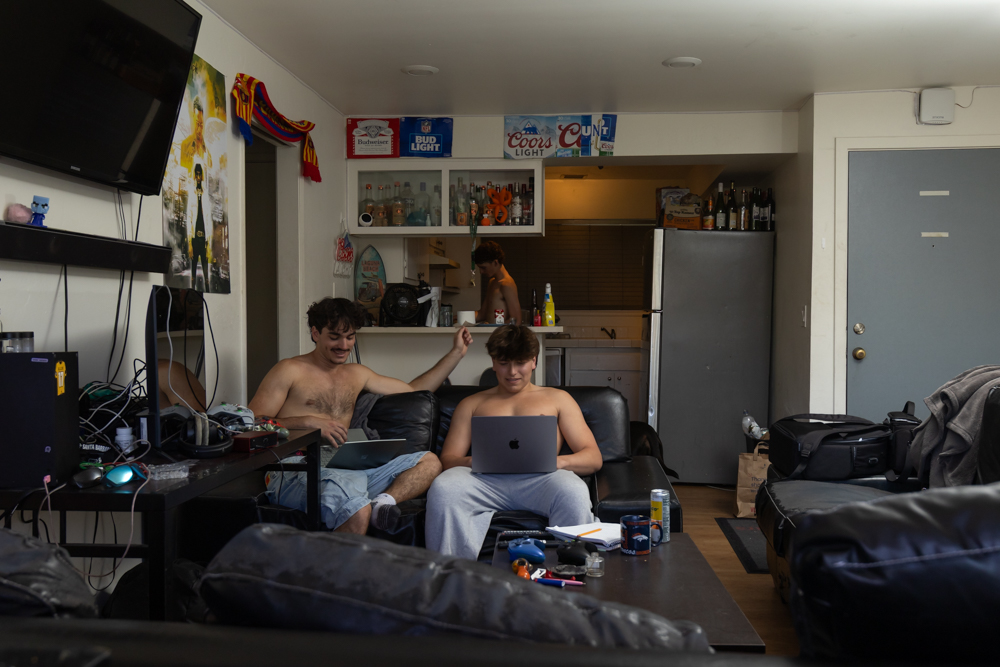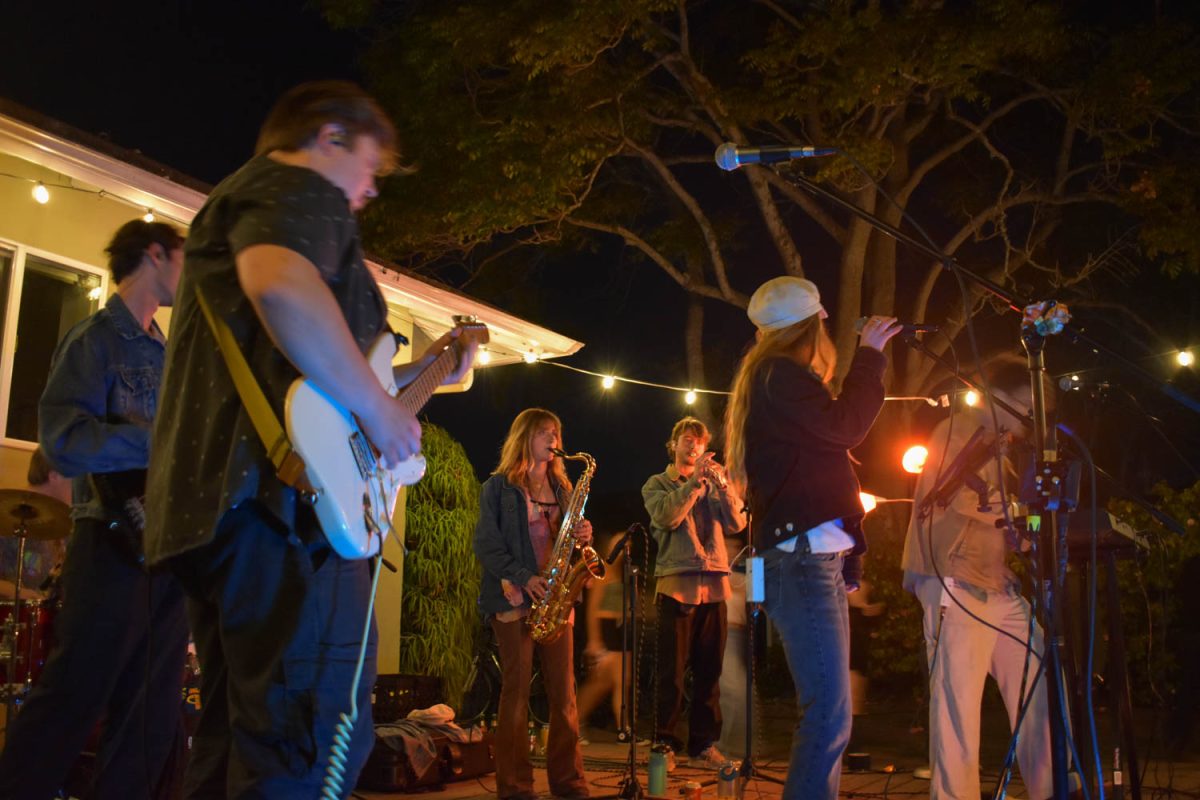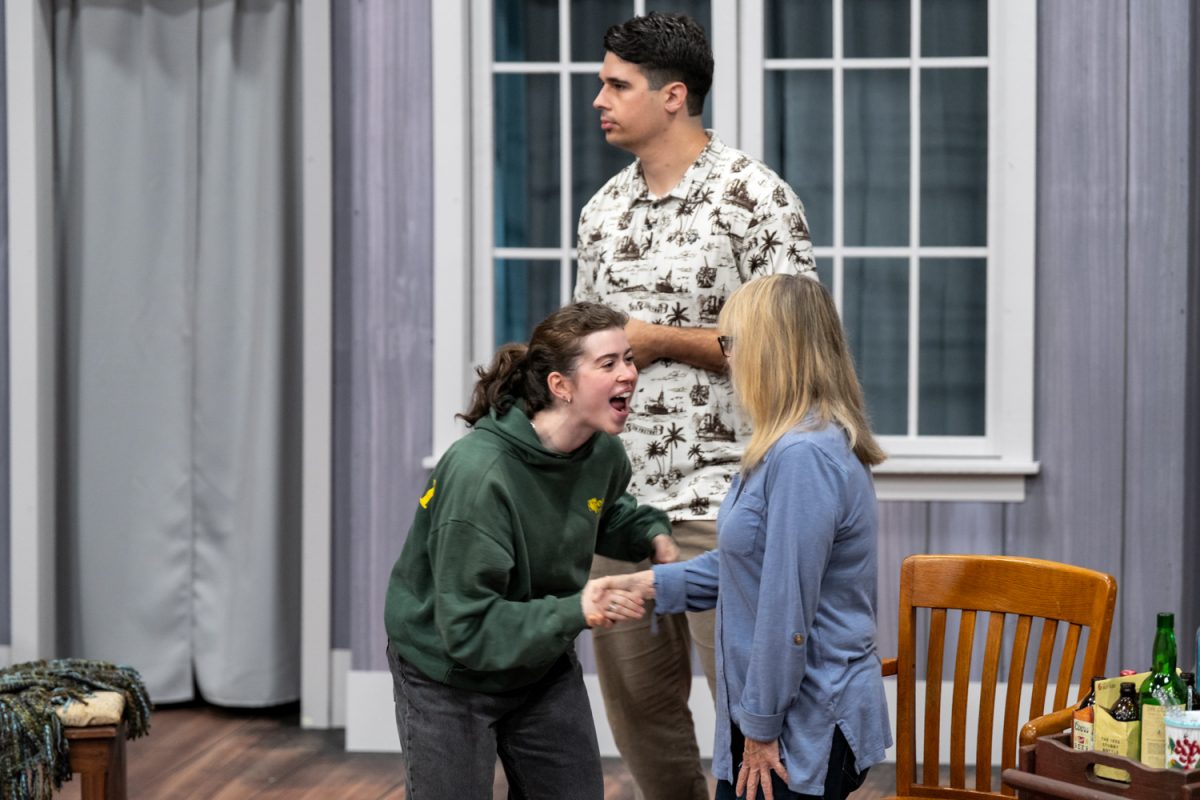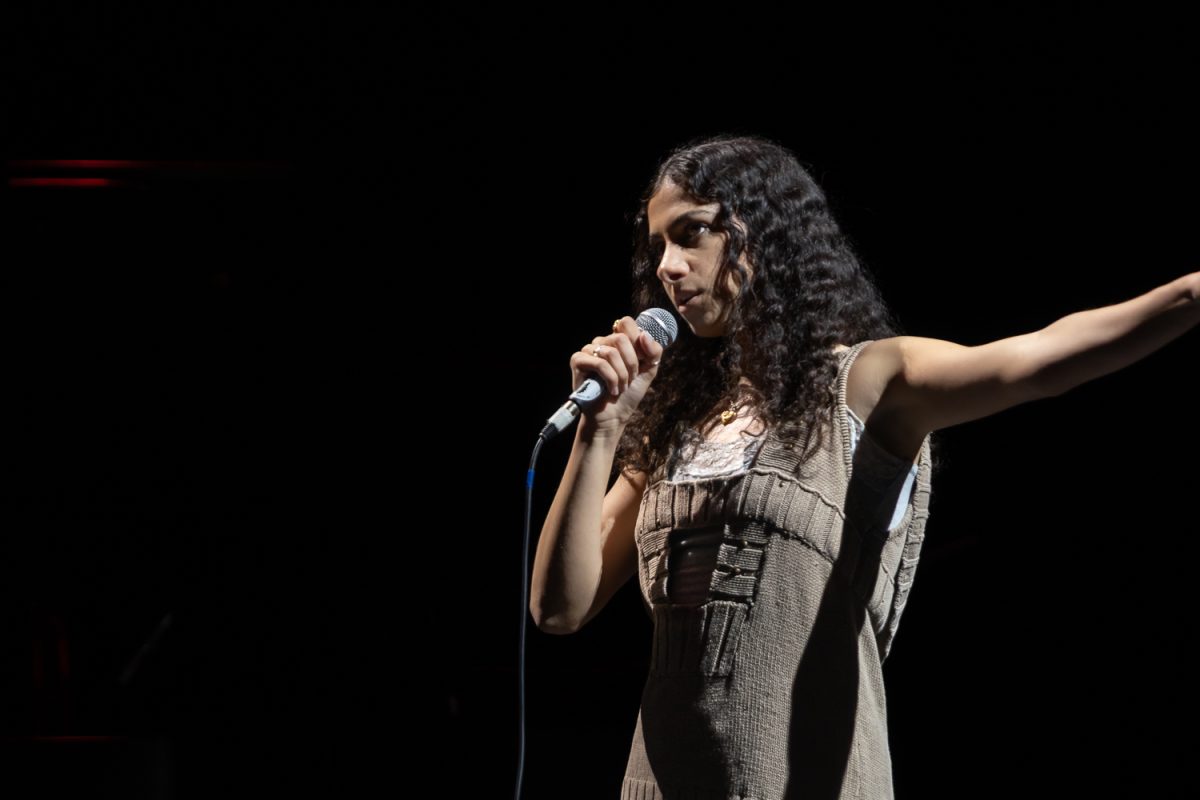Pan de muerto, mariachi, sugar skulls, poetry readings, games and laughter are just a few of the ways that the City College community honored the dead on Dia de los Muertos.
City College has been known to host special events each year for Dia de los Muertos. This year, one of the main events was hosted by the Student Equity Committee. The second annual “Putting Inequity To Rest” event was held from 11 a.m. to 3 p.m. on Thursday, Nov. 2, on West Campus Lawn.
The Student Equity Committee hosts events aimed to give minority students a chance to get involved. “Putting Inequity to Rest” was no exception to this.
According to Isaac Zamora, a student working on the committee, the event was designed to bring the community closer as a whole. He described the event not as a reason to “feel down” about those we have lost, but as a reason for participants to come together in life.
Hundreds of students dropped in and out of the event to take part in the many festivities.
The event started off with a Chumash ceremony honoring the land that City College was built on, which included sacred songs and the traditional sage burning.
Student performances and games followed, including a game of musical chairs with a live mariachi band. Students also lined up to eat delicious mexican dishes throughout the event.
Leslie Marin, another student member on the committee, had a similar view to Zamora’s when asked about the event and it’s impact on City College students.
“The main thing we are doing here is uniting our community and celebrating one another,” Marin said.
In addition to the “Putting Inequity to Rest” event, the Multicultural English Transfer Program also hosted a poetry reading to celebrate the day, from 5 to 6 p.m. in the Atkinson Gallery.
The event began with a poem read by Dr. Clara Oropeza, MET program director. She explained that the poems read were meant to honor the dead and celebrate life.
Students and faculty alike took turns reading poetry to an audience of approximately 40 people, on the platform made entirely out of adobe in the Gallery. The poetry that was read could either be a borrowed work or self-written.
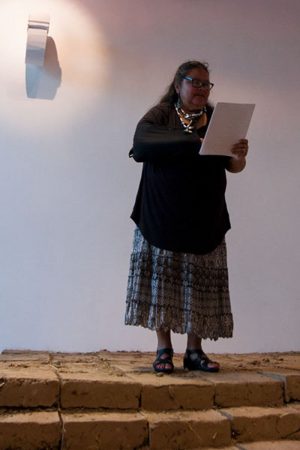
English teacher Annette Cordero recites two poems at the Day of the Dead poetry reading event.
Anette Cordero, an English Professor in the program, shared two different poems she wrote about her Chumash roots and her connection to her family, particularly her parents. They were titled “Chicana Lit” and “Who Walks on Rainbows Anymore,” respectively.
“This setting is the perfect place to read these poems,” Cordero said. “The adobe in this room connects me to my Chumash ancestors. The reason I started choking up at the end is because both my parents are now deceased, and the poems honor them and our ancestors.”
English major Luis Cardenas also shared his own work. He shared a unique piece that he wrote in tanka style, a japanese style of short poetry.
Cardenas explained that his poem was honoring his dead grandfather, whom he never got a chance to meet.
“My family emigrated here from Guatemala before I was born,” he said. “My grandfather was the only one who stayed behind, and that’s where he passed away.”


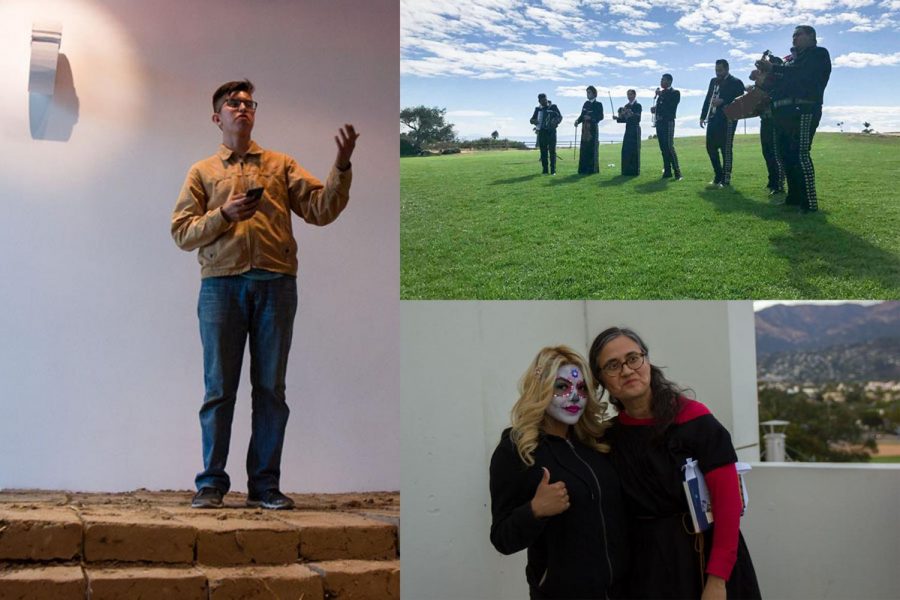

![Milton Alejandro Lopez Plascencia holds a flag showcasing the United States and Mexico on Feb. 7 in Santa Barbara, Calif. “It’s heartbreaking to see what is happening all across the country,” Lopez Plascencia said. “I [want] my voice to be heard by the community.”](https://www.thechannels.org/wp-content/uploads/2025/05/MGSImmigration-1-1200x800.jpg)


![The new Dean of Social Science, Fine Arts, Humanities and English, Eric Hoffman beams on May 2 in Santa Barbara, Calif. "My major professor in college [inspired] me," Hoffman said. "You can really have a positive impact on people's lives in education."](https://www.thechannels.org/wp-content/uploads/2025/05/MGSHoffman-2-1200x800.jpg)
